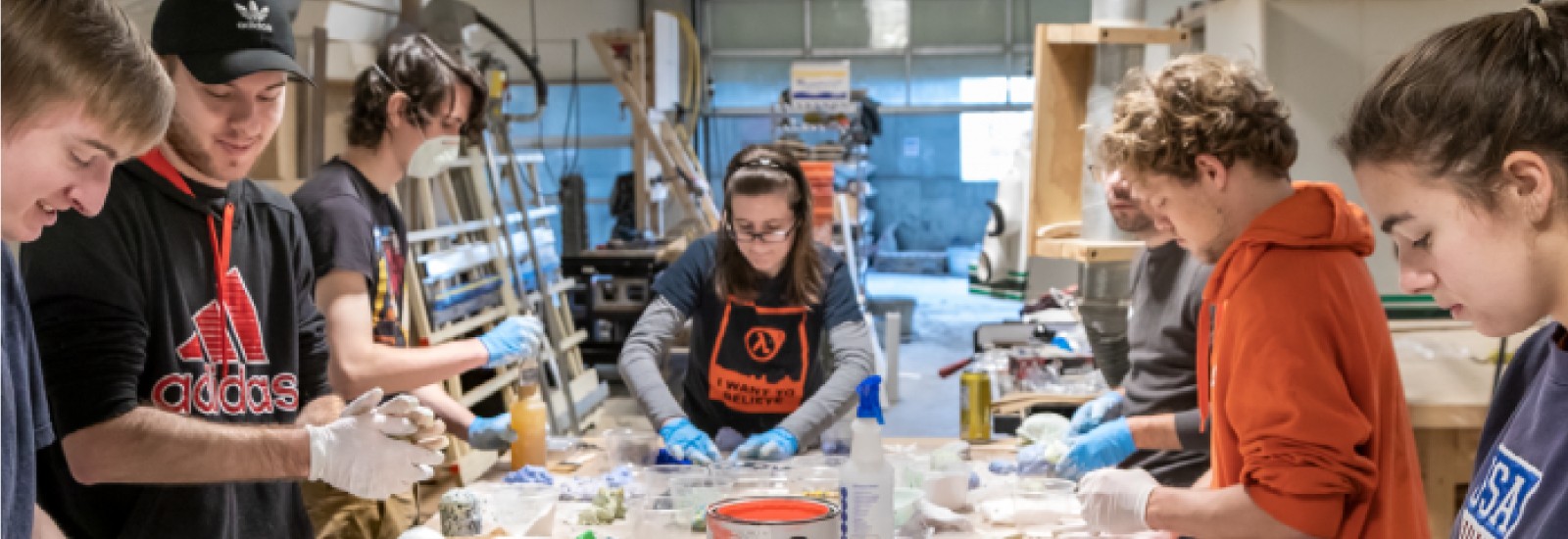Disposable plastic never really goes away. An estimated 32% of plastic packaging escapes all waste collection systems. Released into the wild, non-biodegradable plastic objects disrupt urban infrastructure and natural ecosystems. What if this waste—rich in material potential—found new work instead?
Organized by Associate Professor of Architecture Justin Diles, the Making Matter Workshop explored methods for embedding granulated waste plastic into concrete, plaster, and other mineral substrates to make new, expressive composite materials for architecture and design. Students from the Knowlton School, the Department of Art, and the College of Engineering collected waste plastic items like disposable packaging and old toys found on the street. These items were then ground up, producing new forms of raw material from waste.
The workshop was led by artist Melissa Vogley-Woods, an expert in making composite materials for her sculptural work. Among other methods, Vogley-Woods is a master in scagliola, a 17th-century plaster technique used to simulate marble and other variegated natural materials. "Inspired by scagliola's potential to invent new material effects, the workshop used a variety of techniques—molding, rolling, slumping, dipping and pouring—to develop agglomerated surfaces and small artifacts using readymade molds and found objects," stated Diles.
The results of the workshop will be polished, scanned and further studied by Knowlton students enrolled in Plastic Dreams (ARCH5590), a technology and fabrication course taught by Diles.
The workshop was initiated by Alternative Matter(s), a new interdisciplinary research consortium co-founded by Diles and Professor Yael Vodovotz from the Department of Food Science and Technology. The event was funded by The Bioplastic Alternatives Interdisciplinary Team (BAIT)—a recent recipient of a multi-year grant from the Center of Applied Plant Sciences. The interdisciplinary team includes faculty from Food Science, Horticulture and Crop Science, Agricultural and Biological Engineering, Chemical and Biological Engineering, Chemistry, Architecture, Material Science, and Civil, Environmental and Geodetic Engineering. BAIT seeks to create a new family of bio-based, biodegradable and waste-capture products as alternatives to virgin petroleum-based plastics prevalent in packaging, agricultural, and construction industries.
